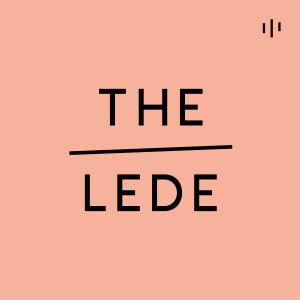
Thursday Feb 23, 2023
Examining Nigeria’s Elections — with Obiageli Ezekwesili and Kwangu Liwewe
Tomorrow, Nigerians will head to the polls to elect a new president and vice president, as well as members of the Senate and House of Representatives. This election is Africa's first in 2023 and has been described as the most consequential election this year — not only for Africa but for the rest of the continent. Nigeria is Africa's most populous nation and has its largest economy. So when Nigeria sneezes, the rest of the continent catches a cold.
“Citizens are tired of simply repeating and rinsing electoral cycles. So they want elections that lead to governance, not just governance, but good governance, and the benefits of having democratic processes,” Oby Ezekwesili tells New Lines magazine’s Kwangu Liwewe.
“People actually boasted that they didn't waste their time to go and vote, because they're all the same. That was the basic premise on which people didn't waste their time with our democracy. And it's not just in Africa, it's actually across the continent.”
But elections have consequences, especially in a country like Nigeria. In an effort to curtail attempts at corruption related to the elections, the Central Bank of Nigeria, working with the Independent National Electoral Commission, announced that the country will move to a cashless economy and that the current naira notes will no longer be valid in the days close to the elections. But this creates its own set of systemic issues for low-income groups who rely on cash transactions. Ezekwesili, who is the senior economic adviser of the Africa Economic Development Policy Initiative and the former vice president of the World Bank (Africa region), predicts that this will affect Nigeria’s productivity in the months ahead.
For now, she is among those who remain hopeful that this election has the potential to deliver what Nigerians ultimately want: accountability, economic growth, human capital development, infrastructure to support their needs as citizens as well as businesses and a better environment for doing business. And though Ezekwesili says that the presidential candidates put forth by the incumbent All Progressives’ Congress (APC) and long-dominant People’s Democratic Party (PDP) simply don’t resonate with the culture of good governance that citizens want to see, it is ultimately up to those citizens to make the decision that will move their country, and indeed the continent, forward.
“The less attention that citizens pay to democracy, the more that they should be ready to take any consequences of their absence from a process that is actually defined by the level of participation,” Ezekwesili says. “But it is vital, it is critical for us to have a peaceful election — Nigeria is too big to fail.”
And so when polls open Saturday morning, the elections will be watched closely — even by those not participating in them, whether in Nigeria or abroad.
Produced by Faisal Al Yafai, Sabrine Baiou and Christin El-kholy
No comments yet. Be the first to say something!